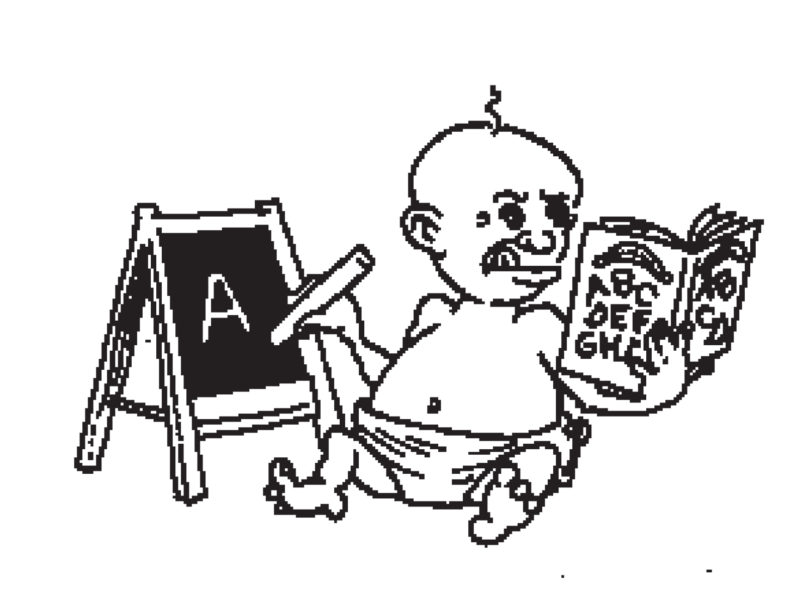“The first idea was not our own.”
—Wallace Stevens, “Notes Toward A Supreme Fiction”
ASPIRANTS
To linger around the bookstore alcove dedicated to how-to-write books is to grow quickly acquainted with the many species of human expectation. One after another the aspirants come—the good-sport retiree who has decided to tell her life story, the young specter of manhood with scores to settle and truths to tell, the Cussler- and Patterson-overdosed executive aiming to blockbust his way to lakefront property and setting his alarm for ten—and shyly pull books off the packed shelves, level upon level of volumes promising to atomize the frustratingly numerous barriers between them and their dreams. Yet most of the people who frequent the how-to-write section will never become writers. It gives me no pleasure to make that observation, just as it gives me no pleasure to admit that I will never play swingman for the Indiana Pacers.
The question is whether these people will never become writers because they are not talented or because the books that congest the shelves of the how-to-write section are mostly useless. This sounds much sharper than I intend. Look around the how-to section. To your left: books on how to garden. To your right: computer programming. Down the way a bit more: How to Play Five-String Banjo. Most of the people who buy these books will not become professional gardeners or computer programmers or banjoists either. Would a successful computer programmer sneer at a person seeking to explore the pleasures of writing a few lines of code? Somehow one doubts it. Dreams, after all, are many, often mundane, and their private pursuit is the luxury of every dreamer.
But an even dustier (and probably unanswerable) question must first be posed: Can writing be taught? Both congratulation and flagellation tend to accrue upon the answers this question receives. Those who maintain that writing cannot be taught are in effect promoting the Priesthood Theory of writing. In short, a few are called, most are not, and nothing anyone does can alter this fated process. Those who maintain that writing can be taught are, on the other hand, in grave danger of overestimating their ultimate value as teachers, though most of the writing teachers I know are squarely agnostic on the issue. My own view, if it matters: Of course writing can be taught. Every writer on the planet was taught, via some means, to write. Even those lacking the guildlike background of an MFA program or the master-apprentice experience of studying beneath an attentive teacher taught themselves to write—most likely by reading a lot of literature. To think about this question for more than a few moments quickly...
You have reached your article limit
Sign up for a digital subscription and continue reading all new issues, plus our entire archives, for just $1.50/month.
Already a subscriber? Sign in





